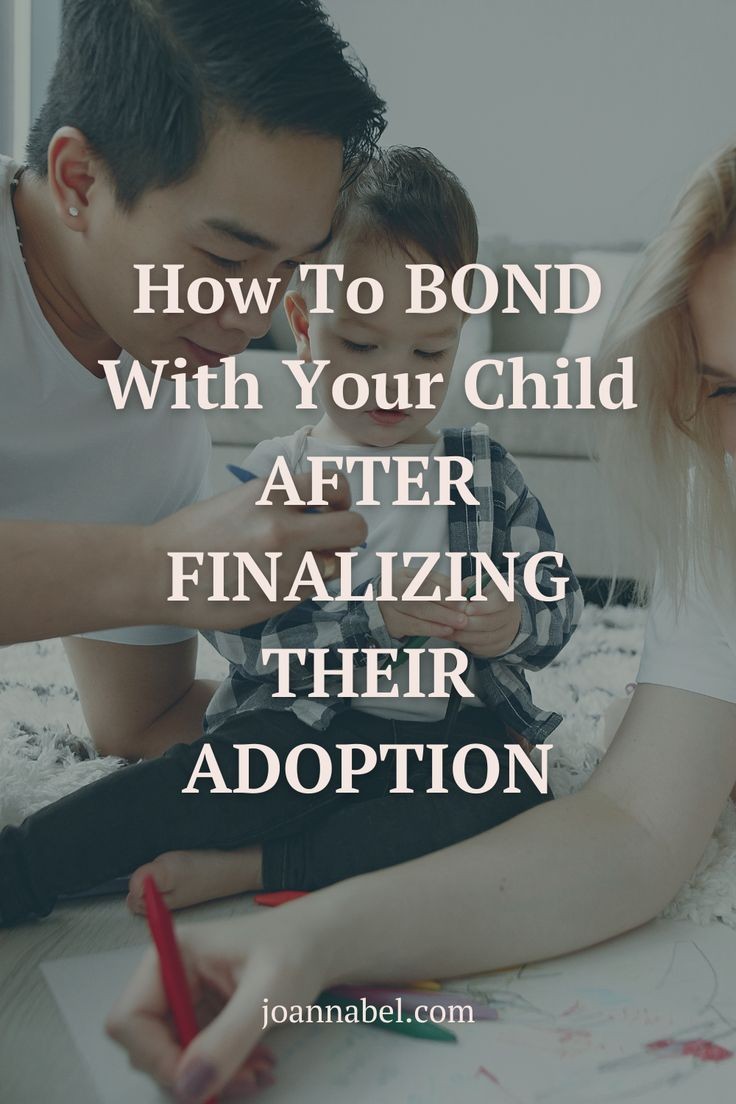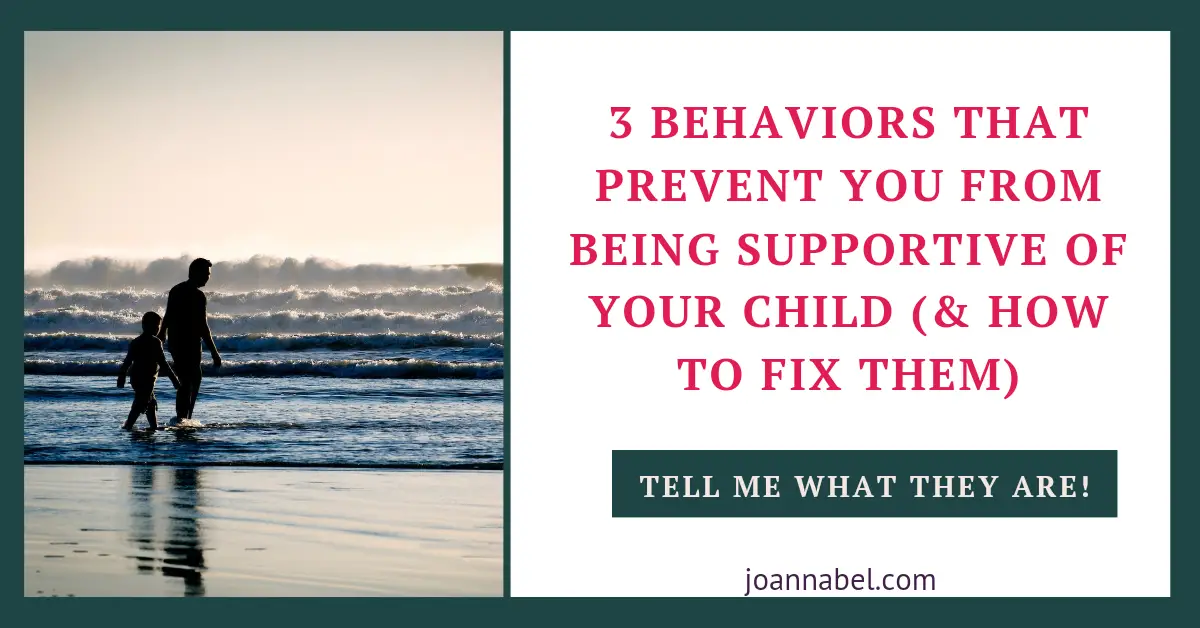Bonding with your child after finalizing their adoption is a path of patience, trust, and understanding. As both you and them adjust to the new reality, creating a safe and supportive environment helps strengthen your connection.

Bonding With Your Child After Finalizing Their Adoption
This post explores key ways to nurture your relationship and build lasting trust. So if you’re ready, let’s dive right in!
Note: Although I am a Clinical Social Worker, engaging with this website does not establish a professional social worker-client relationship. The information provided here is for general purposes only and should not be considered professional advice. While we strive to ensure accuracy and reliability, this content is not a substitute for professional guidance. For specific concerns, issues, or situations, it is essential to consult a qualified professional and present your situation. Read the full Disclaimer here.
Bonding With Your Child After Finalizing Their Adoption
Finalizing the adoption process represents the beginning of an exciting, meaningful chapter for your family.
While it’s a joyful time, it can bring many changes for your adopted child and your household. Building a strong connection requires patience and intention.
When bonding with your child after finalizing their adoption, focus on creating a welcoming environment and honoring their unique story.
Speaking of honoring their story…
Be Conscious Of And Support The Integration Of Their Life Experiences (Their Story)
Keep in mind that you can’t save an (adopted) child from the experience they already have.
They went through a separation or an abandonment (depending on the particular situation), and this has affected and shaped them. Considering that you’re aware of this, naturally you will feel the urge to shield them from all harms and wrongdoings in the world.
Even though this makes you a good human being, even a special one (since you were chosen for the adoption that’s most likely true), you should know that the things they went through can’t be undone, nor should they.
Nobody can rewrite their previous life chapter, but what you can do is support them in integrating things, recovering, and moving on. This will help ‘’write’’ a better future for them.
If they want to share their experience with you then support them.
If they don’t find out why, but don’t pressure them to open up. They’ll know when they’re ready and if they should trust you.
See if they are feeling overwhelmed or learn if this is too painful, or if it’s something else. You can ask them what they need and give them enough space.
Be Neutral In All Mentions Of Their Biological Parents
You may feel conflicted about the child’s biological parents since you have an intention to be the parent of this child that’s also linked to them, and at the same time, you feel very protective of the child due to their experiences with their biological family.
Know that this is expected and can entice you to want to critique the behaviour or actions of the biological parent(s).
However, you should remain cognizant that you might not be able to (always) be objective and neutral. This suggests that you should put in the effort to keep refraining from making any statements about their biological parents.
Unless there’s a real, objective threat or danger where you need to warn the child or someone else.
Not just a perceived threat, coming from a desire that a child cuts the cord with the biological family and have one with you (only). It is ‘normal’ and expected that you feel this way since you aim to be this child’s parent. That’s because you want them to rely on you for guidance, support, and connection and not someone else.
Make Them Feel Welcome at Home
Your ability to provide your child with a safe, inclusive environment full of love and necessities is so crucial that it’s one of the main requirements to meet when you prepare to adopt a child.
To become this child’s parent, you had to prove that you had the following:
- The emotional bandwidth to care for a child, including one who may have experienced trauma
- A plan to enroll your child in a local school to ensure they receive a proper education
- A safe baby-proof or child-proof living environment
- Food, clothes, and a room for the child.
Finalizing an adoption means you demonstrated this well to an adoption agency/service/center and family court, but it’s equally important that your child trusts you to provide these things, too.
Once you bring your child home, you can involve them in personalizing their safe space.
Allow them to choose bedding, decorations, or even small items that reflect their personality. This can help them feel a sense of ownership and belonging.
Stay Responsive Even When You (Repeatedly) Get Tested By Them
Many/most of these kids have experienced disruption in stability (of the important relationships in their life), such as abandonment from their biological parents, and have been in some way hurt in the closest connections.
This will be reflected in their behavior, so you can expect them to try to test whether you’ll do something similar.
For instance, they are very sensitive to the feelings of unsafety (even the smallest level) which can trigger them to demonstrate the determination to leave. If something like this happens, it’s important that you reassure them that you won’t let them leave without you, which will signal that you won’t do like the biological family did.
They’ll also need to feel in control, which suggests that you need to always be mindful to share control with them. This doesn’t mean equally shared responsibility; it means giving them the seat at the table where decisions are made. Remember that this is true for all children, but we can say that it’s even more important with these kids.

All of these tests will require that you remain very responsive to their needs, be psychologically flexible, and look at the psychological processes alongside the content.
This suggests that you need to pay close attention to what they’re trying to tell you with their behavior. Just keep reassuring them (verbally and non-verbally) that you’re there for them and that you have no intentions to change this even if they were to try to push you away.
If they’re going in and out of closeness, that’s also something to ‘normalize’ in your perception of them. Meaning that instead of reacting to their behavior, you stay tolerant to their testing of the waters and keep reassuring them.
Help Them Adjust to New Relationships
Adoption brings changes both in family structure and dynamics—parents, siblings, extended family, new schoolmates, and pets. For children, these connections will feel exciting but can also create overwhelm.
One of the best things you can do to help your child develop healthy coping mechanisms when navigating changes is to take things at their own pace. Validate their experience and feelings.
You can start with the following:
- Help them identify their emotions and their manifestations.
- Regularly ask them to share the highs and lows they feel.
- Guide them in managing their thoughts and feelings in stressful situations.
- Listen without judgment, help them develop problem-solving skills, and applaud their efforts in using them.
Doing so allows them to cultivate emotional stability that helps them adjust well to their new environment and social interactions.
Pro Tip
If you have other children, discuss the new family structure and provide context for them if it’s clear to you that they perceive how certain situations require you to give an unequal level of attention. You may want to anticipate that kids could get the wrong idea about this.
I already mentioned something like this, but I’ll emphasize the importance of not being over protective of the child because they went through hard times. This is essential because you don’t want them to grow into individuals who can’t manage their lives and feel incompetent to act independently and practice autonomy.
Additionally, help them show kindness and create shared activities all kids can enjoy together when ready.
Latest Posts:
- How To Help Cultivate Your Child’s Interests in Art

- The Bedroom Door: Why Privacy for Teens Isn’t Optional

- The Importance of Play in Child Development

- 5 Hobbies That Will Help You Connect With Your Teens

- A Guide to Balancing Parenting Roles After Divorce

- Gifts for Your Teenager That They’ll Actually Enjoy

Final Thoughts On Bonding With A Child After Finalizing Adoption: Be Gentle With Change
Bonding with your child after finalizing their adoption is an ongoing experience. Your child may grieve aspects of their previous life chapter or fear changes in their new one, even while excited.
All their feelings are valid. Professional help can be invaluable if your child struggles to cope.
Encourage them with patience and support, remembering that adoption is more than a process; it’s a promise to love, protect, and guide them every step of the way.
If you found this helpful, continue here:









Leave a Reply